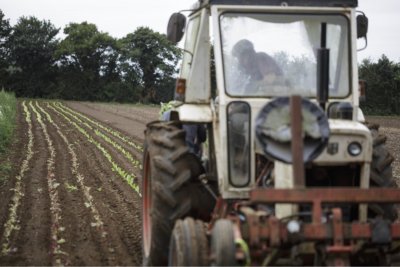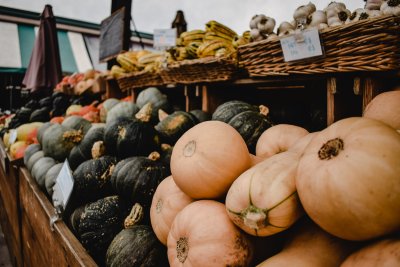Farming at urban edges offers shoots of green recovery
There are huge opportunities for peri-urban areas to connect urban and rural economies through more food growing, providing new jobs, goods and services. In a new report, leading farming and food organisations provide key policy recommendations for national government and local authorities to support increasing demand for agroecologically-grown foods from the urban fringe.

Food and farming organisations are calling on local and national government to respond to increased demand for regionally-produced, healthy foods as part of a green economic recovery. The new report, published by Sustain, highlights the edges of towns and cities with access to markets and histories of market gardens, as a way to generate new green jobs, goods and services with money going back into communities.
Read the Fringe Farming report
Examples of existing peri-urban farms show how they produce multiple benefits such as access to green space, outdoor education programmes, as well as public goods like increasing biodiversity and sequestering carbon into soils. The report highlights how these activities can support existing goverment targets on climate change, to enterprise, to education.
'Fringe Farming', a collaborative UK-wide partnership, brought together hundreds of farmers in 2021 to discuss what was needed to enable the sector to meet increasing demand and growing waiting lists for regional food products. Farmer forums repeatedly highlighted the issue of gaining secure access to land, and raising initial project costs, as key barriers to setting up new initiatives.
The report lays out policy ideas to challenge these barriers such as removing limitations to the size of farm that can apply for government farming subsidies, identifying land for growing, and investing in economic activity by providing mixed loans and grants for new-entrants in post-Brexit farm policies.
In 2022 the 'Fringe Farming' project will work with local authorities and farmers to carry out regional action plans in five UK cities (Bristol, Cardiff, Glasgow, London, Sheffield) and host national events to bring together policy-makers, researchers and practitioners to form collaborative solutions on key issues.
Vicki Hird, Head of Sustainable Farming at Sustain, said: "In the wake of Brexit, and the issues that Covid-19 has highlighted about UK food supply, we have a real opportunity to invest in the peri-urban farming sector to support food economies resilient to shocks, and new jobs and training opportunities in communities."
Kim Graham, Research Coordinator at Shared Assets, added: "Time and again we've heard from new-entrants that getting decent access to land around cities is holding back new farming enterprises. With the demand for regional food products and educational opportunities increasing, national goverment can invest in long-term economic and ecological benefits by supporting local councils to offer land for agroecological market gardens. Council-owned farms particularly hold alot of potential for developing training opportunities and patchworks of new-entrant plots."
Download the report here.
Published Monday 7 February 2022
Fringe Farming: The Fringe Farming project is a collaboration with partners across the UK to understand barriers, identify land opportunities and local actions, and develop national policy to enable agroecological farming at the edge of cities as part of a green economic recovery.





